-
 Underdogs Wales could hurt Irish after Scotland display: Popham
Underdogs Wales could hurt Irish after Scotland display: Popham
-
Gilgeous-Alexander rules over Knicks again in Thunder win

-
 Hamilton reveals sequel in the works to blockbuster 'F1: The Movie'
Hamilton reveals sequel in the works to blockbuster 'F1: The Movie'
-
Alonso, Stroll fear 'permanent nerve damage' from vibrating Aston Martin

-
 China boosts military spending with eyes on US, Taiwan
China boosts military spending with eyes on US, Taiwan
-
Seoul leads rebound across Asian stocks, oil extends gains

-
 Tourism on hold as Middle East war casts uncertainty
Tourism on hold as Middle East war casts uncertainty
-
Bayern and Kane gambling with house money as Gladbach come to town

-
 Turkey invests in foreign legion to deliver LA Olympics gold
Turkey invests in foreign legion to deliver LA Olympics gold
-
Galthie's France blessed with unprecedented talent: Saint-Andre

-
 Voice coach to the stars says Aussie actors nail tricky accents
Voice coach to the stars says Aussie actors nail tricky accents
-
Rahm rejection of DP World Tour deal 'a shame' - McIlroy

-
 Israel keeps up Lebanon strikes as ground forces advance
Israel keeps up Lebanon strikes as ground forces advance
-
China prioritises energy and diplomacy over Iran support

-
 Canada PM Carney says can't rule out military participation in Iran war
Canada PM Carney says can't rule out military participation in Iran war
-
Verstappen says new Red Bull car gave him 'goosebumps'

-
 Swiss to vote on creating giant 'climate fund'
Swiss to vote on creating giant 'climate fund'
-
Google to open German centre for 'AI development'

-
 Winter Paralympics to start with icy blast as Ukraine lead ceremony boycott
Winter Paralympics to start with icy blast as Ukraine lead ceremony boycott
-
Sci-fi without AI: Oscar nominated 'Arco' director prefers human touch

-
 Ex-guerrillas battle low support in Colombia election
Ex-guerrillas battle low support in Colombia election
-
'She's coming back': Djokovic predicts Serena return

-
 Hamilton vows 'no holding back' in his 20th Formula One season
Hamilton vows 'no holding back' in his 20th Formula One season
-
Two-thirds of Cuba, including Havana, hit by blackout

-
 US sinks Iranian warship off Sri Lanka as war spreads
US sinks Iranian warship off Sri Lanka as war spreads
-
After oil, US moves to secure access to Venezuelan minerals

-
 Arteta hits back at Brighton criticism after Arsenal boost title bid
Arteta hits back at Brighton criticism after Arsenal boost title bid
-
Carrick says 'defeat hurts' after first loss as Man Utd boss

-
 Ecuador expels Cuba envoy, rest of mission
Ecuador expels Cuba envoy, rest of mission
-
Arsenal stretch lead at top of Premier League as Man City falter

-
 Title race not over vows Guardiola after Man City held by Forest
Title race not over vows Guardiola after Man City held by Forest
-
Rosenior hails 'world class' Joao Pedro after hat-trick crushes Villa

-
 Brazil ratifies EU-Mercosur trade deal
Brazil ratifies EU-Mercosur trade deal
-
Real Sociedad edge rivals Athletic to reach Copa del Rey final

-
 Chelsea boost top four push as Joao Pedro treble routs Villa
Chelsea boost top four push as Joao Pedro treble routs Villa
-
Leverkusen sink Hamburg to keep in touch with top four

-
 Love match: WTA No. 1 Sabalenka announces engagement
Love match: WTA No. 1 Sabalenka announces engagement
-
Man City falter as Premier League leaders Arsenal go seven points clear

-
 Man City title bid rocked by Forest draw
Man City title bid rocked by Forest draw
-
Defending champ Draper ready to ramp up return at Indian Wells

-
 Arsenal extend lead in title race after Saka sinks Brighton
Arsenal extend lead in title race after Saka sinks Brighton
-
US, European stocks rise as oil prices steady; Asian indexes tumble
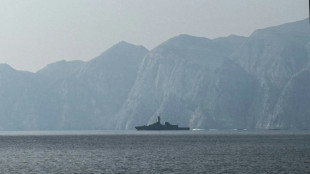
-
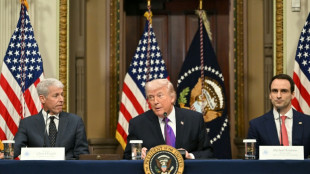 Trump rates Iran war as '15 out of 10'
Trump rates Iran war as '15 out of 10'
-
Nepal votes in key post-uprising polls

-
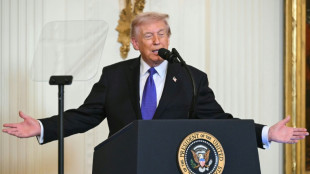 US Fed warns 'economic uncertainty' weighing on consumers
US Fed warns 'economic uncertainty' weighing on consumers
-
Florida family sues Google after AI chatbot allegedly coached suicide

-
 Alcaraz unbeaten run under threat from Sinner, Djokovic at Indian Wells
Alcaraz unbeaten run under threat from Sinner, Djokovic at Indian Wells
-
Iran's supreme leader gone, but opposition still at war with itself
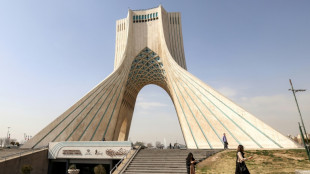
-
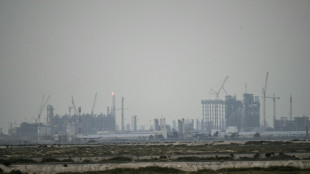 Mideast war rekindles European fears over soaring gas prices
Mideast war rekindles European fears over soaring gas prices
-
'Miracle to walk' says golfer after lift shaft fall

Venezuela braces after Strike
The first kinetic U.S. strike aimed at a suspected cartel vessel departing Venezuela has jolted the region and pushed Caracas onto a war-footing. In Washington, officials frame the action as a necessary escalation in a broader campaign against transnational crime. In Caracas, leaders denounce it as a pretext for intervention. Between these poles lies a volatile mix of military signaling, legal ambiguity, and the risk of miscalculation.
In the early hours of this week’s operation, a U.S. Navy asset destroyed a speedboat that American officials said was transporting narcotics and crewed by members of a violent gang with roots in Venezuela. The attack, which killed multiple occupants, marked a departure from the long-standing pattern of maritime interceptions and arrests in the Caribbean. It was a strike designed to deter—and to advertise a new threshold.
Inside the United States, the move sits within a sharper doctrine: treating major Latin American criminal organizations as terrorist entities and, when judged necessary, applying military force beyond U.S. borders. Recent designations and rhetoric have been used to justify an expanded toolset—sanctions, asset freezes, forward deployments, and, now, lethal action at sea. Critics warn that such steps outpace statutory authorities and established international law. Supporters counter that cartels operate as militarized networks and should be met accordingly.
In the days following the strike, senior officials signaled that more operations are on the table. Additional U.S. aircraft have moved into the Caribbean theater, and planners are weighing options that range from intensified maritime interdiction to potential strikes on cartel infrastructure. The visible buildup—paired with high-profile statements from the White House—aims to deter trafficking networks and pressure Caracas to curb their reach.
Venezuela has answered with its own show of force. President Nicolás Maduro ordered troop surges to coastal and border states identified as smuggling corridors, while defense chiefs pledged large-scale counter-narcotics operations under national command. The message is twofold: sovereignty will be defended, and Caracas—not Washington—will police Venezuela’s territory and adjacent waters. The moves underscore how quickly an anti-cartel push can harden into state-to-state confrontation.
The legal terrain remains unsettled. Absent a specific congressional authorization for the use of force against Venezuela, and without a U.N. mandate, scholars question the durability of a self-defense rationale for strikes beyond interdiction at sea. Even advocates of a tougher line acknowledge that expanding targets inland would raise qualitatively different questions about sovereignty and escalation. The administration’s rebranding of counter-drug policy with overt military framing has amplified these debates at home and abroad.
Markets and migration add further complexity. Any spiral that interrupts Venezuelan oil logistics, triggers new sanctions rounds, or heightens insecurity could reverberate across regional energy flows and displacement patterns. Neighboring states, wary of spillover violence and politicized migration surges, are urging restraint even as they cooperate on interdiction and financial tracking. Early diplomatic readouts suggest quiet shuttle efforts to prevent misreads at sea from becoming catalyst events.
For now, the strategic picture is clear enough. Washington has crossed a visible line with a highly publicized strike meant to reset cartel risk-reward calculations. Caracas has mobilized to signal resolve and control. Both sides are testing how far they can push without tipping into a broader clash. The coming weeks—defined by whether operations stay offshore, how each side messages its red lines, and whether third countries can shape rules of engagement—will determine if this “first strike” becomes an inflection point or an isolated warning shot.

Can the FANB shield Maduro?

Operation Venezuela: Scenario

Trump vs Intel: Chip endgame?

After Europe’s capitulation

Tariffs roil U.S.–India ties

Adobe down 40% and now?

Adobe down 40%: Kodak moment?

Bolivia at breaking point

Embraer’s 950% surge

China’s profitless push

Alert in Trump’s America




